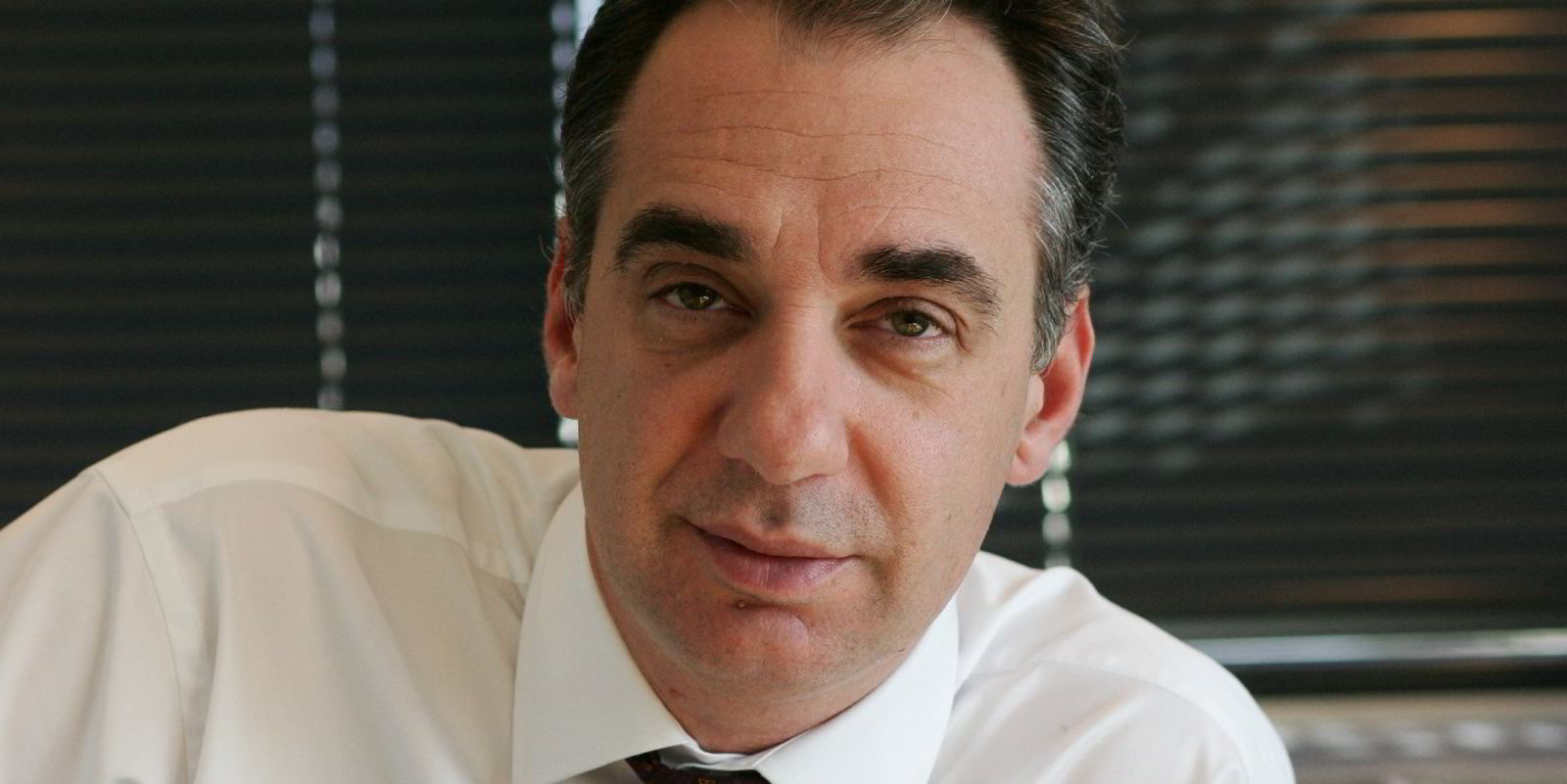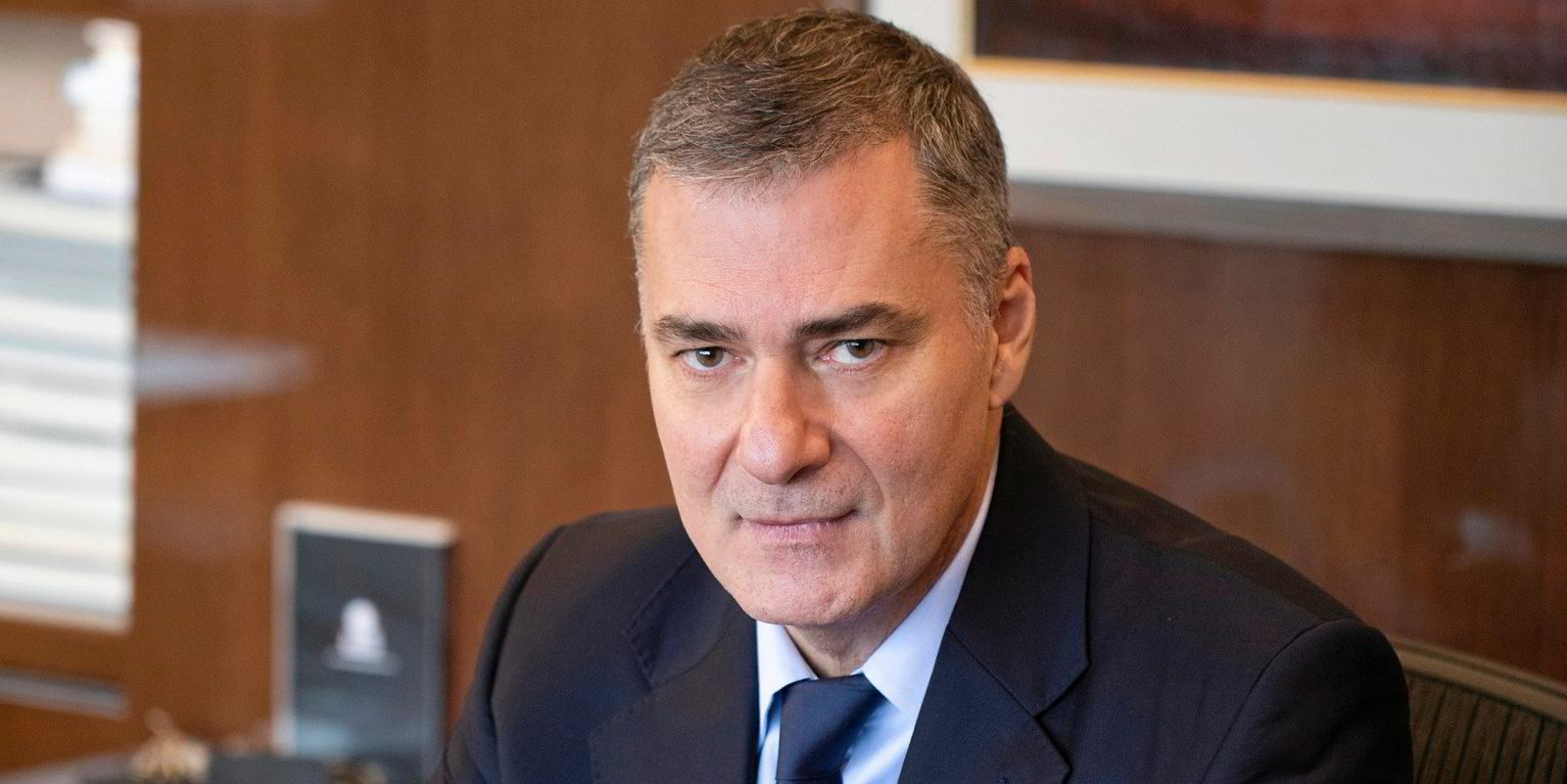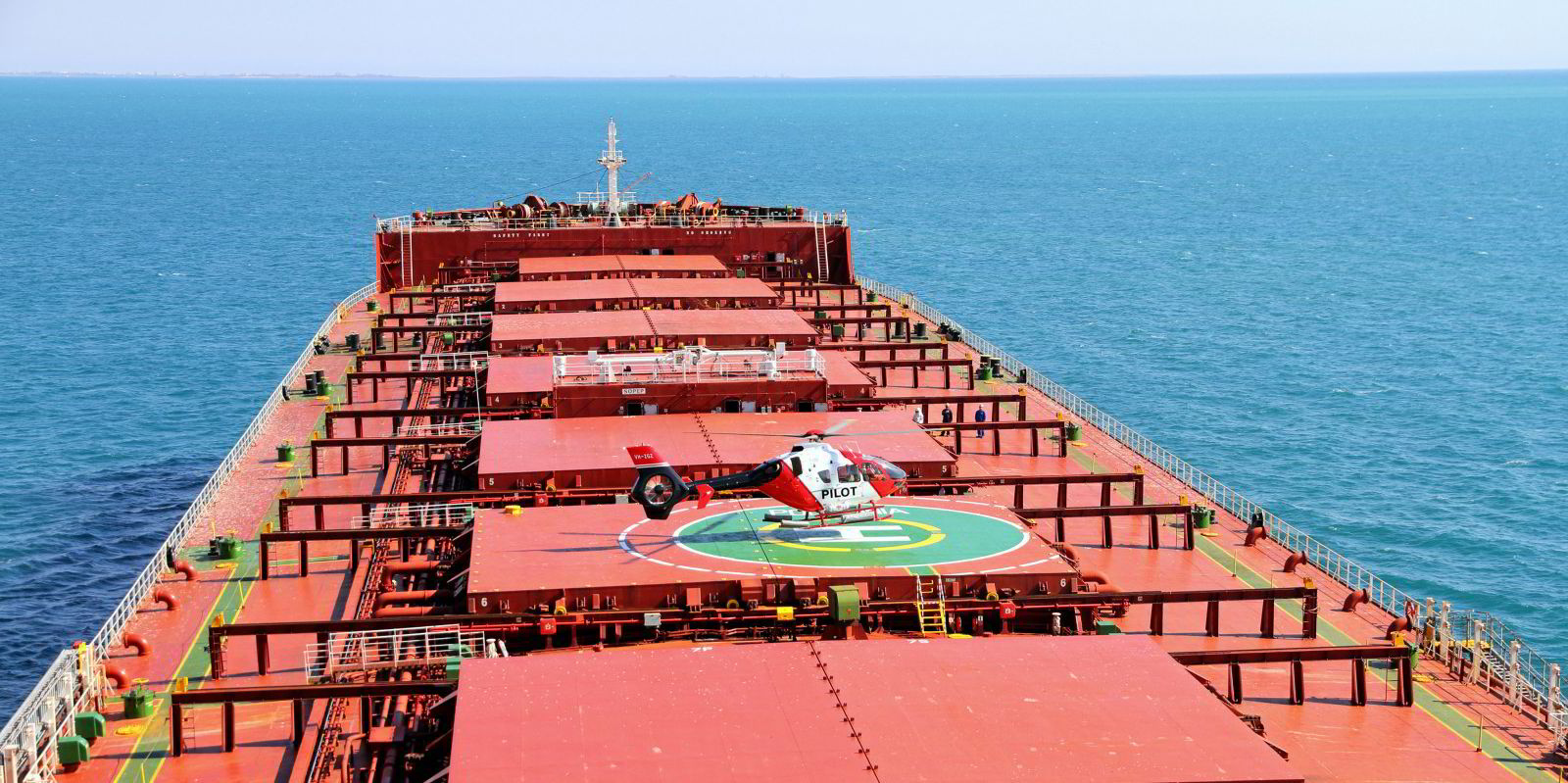Costamare on Friday confirmed acquiring its first capesizes, reaffirming its commitment to a bulker sector that has weighed on results in an otherwise profitable second quarter.
The US-listed owner and operator of about 170 bulkers and container ships reported net income of $63.2m for the three months to June, down 45% year on year.
The company’s growing investment in bulkers — directly owned or chartered-in through its Costamare Bulkers operating platform — was a drag on profitability in the period.
The company, however, is sticking to its diversification strategy.
Costamare has a “long-term commitment to the sector, whose fundamentals we view positively”, its chief financial officer Gregory Zikos said in the results release.
The company, which expanded into bulkers with the purchase of more than 40 secondhand ships a couple of years ago, expanded its footprint further by announcing its first-ever capesize buys.
Costamare confirmed the acquisition of Goodbulk’s 179,800-dwt Aquarange (to be renamed Dorado, built 2011) and 176,000-dwt Aquaenna (to be renamed Enna, built 2011).
Their price was not announced.
Citing market sources, TradeWinds reported in June that Costamare acquired the Aquaenna for about $22m and the Aquarange for about $24m.
Costamare Bulkers has expanded as well, although at a slower pace than in the previous quarter, to 56 bulkers. More than half of its chartered-in tonnage are capesizes and newcastlemaxes.

Including mainly unrealised losses on derivatives linked to Costamare Bulkers, the trading platform lowered Costamare’s net results by about $50m in the second quarter.
In a conference call with analysts later on Friday, management expressed satisfaction with Costamare Bulkers and attributed the loss to expenses incurred to get the company going in its first year of operations — especially in such a volatile business as bulkers.
“It is mainly set-up costs,” Zikos explained, adding: “We're patient... we need to allow more time to see the results this entity will be yielding”.
The company’s 42 fully owned bulkers, which will soon become 44 with the two new, opportunistically acquired capesizes, were loss-making as well but at a much slower pace of $5.7m at net-income level.
As it employs all its owned bulkers in the spot market, Costamare has concluded more than 50 chartering agreements for that fleet since 15 May.
Costamare made no reference on Friday to the investment made by its principal Costis Konstantakopoulos in US-listed bulker company Seanergy.
This confirms that Konstantakopoulos did the Seanergy investment in a personal capacity and it is not related to Costamare.
Costamare-backed Neptune Maritime Leasing, in which the company has invested close to $50m to diversify into the ship leasing business, has started contributing to group revenue.
Having “steadily growing on a prudent basis”, Neptune Maritime has total outstanding lease financings of $120m that will be “complemented by a healthy pipeline extending over the coming quarters”, Zikos said.
Boxships at a ‘healthy level’
Costamare’s fleet of 70 container ships continued displaying rude health, accounting for almost the company’s entire profit in the second quarter.
With 99% of the boxship fleet fixed for 2023 and 87% in 2024, Costamare’s revenue backlog in that segment remains at a sky-high $2.9bn.
“In the container ship sector, the charter market has been softening, although rates remain at healthy levels,” Zikos said.
“The orderbook, however, remains the principal threat to the market,” the Greek manager added.
In a separate container ship development, Costamare disclosed on Friday an agreement to sell the 2,472-teu Monemvasia (built 1998) — its fourth-oldest boxship that it co-owns with York Capital.
Reshuffling interests with its long-standing partner, Costamare also sold to York Capital the 49% stake it owned in another jointly held vessel, the 3,800-teu Polar Argentina (built 2018).
The opposite happened with the sister ship Polar Brasil, where Costamare bought from York Capital the 51% it did not already own.
Costamare and York Capital have been partners since 2013 and their framework agreement has been extended to May 2024.
Their jointly owned fleet has shrunk over time to two ships currently.
Bringing the shares back home
Ongoing profitability and ample liquidity, which the company puts at $1.06bn, allowed Costamare to maintain its dividend unchanged at $0.115 per share.
In the second quarter, the company furthermore reactivated its share buyback programme with significant purchases.
Since 1 April, Costamare has bought back stock worth $50m, leaving another $40m in the pot for common stock buybacks.
The programme highlights the company’s “strong belief that the share price is heavily undervalued considering both the company’s performance and prospects”, Zikos said.





